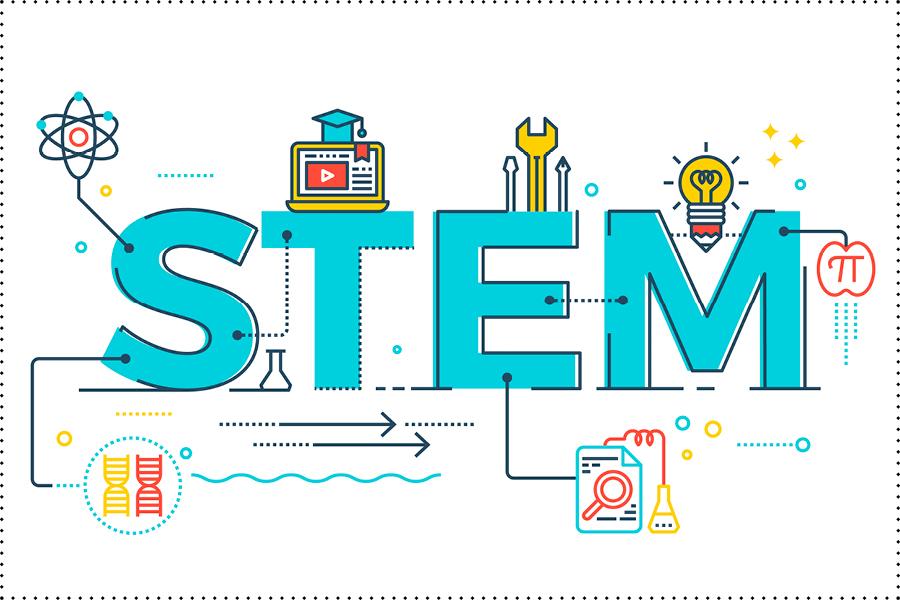
The United States is home to people of all races and cultures, but some populations still suffer serious disparities. This list of 2021 titles address a variety of issues in diversity and discuss how we can build an inclusive and equitable nation. As always, all are free to read online or download.

Transforming Trajectories for Women of Color in Tech
Demand for tech professionals is expected to increase substantially over the next decade, and increasing the number of women of color in tech will be critical to building and maintaining a competitive workforce. Despite years of efforts to increase the diversity of the tech workforce, women of …[more]

Measuring the Opportunity Gap for Children from Birth to Age Eight and Understanding Barriers to Access: Proceedings of a Workshop–in Brief [more]

A diverse workforce and inclusive workspaces are important components of future chemical and chemical engineering research. The workshop Diversity, Equity, and Inclusion in Chemistry and Chemical Engineering, held virtually on May 25-26, 2021, by the Chemical Sciences Roundtable, provided a …[more]

The United States faces an alarmingly high rate of maternal morbidity and mortality, distinguishing it from other high-income countries that have achieved decreases in these rates in recent years. U.S. maternal morbidity and mortality rates are disproportionate across racial, ethnic, …[more]

The COVID-19 pandemic and the associated recession have significantly affected women’s workforce participation. These impacts have varied from job loss to additional caregiving responsibilities. Black and Hispanic women have been particularly affected, bringing into sharp relief historical …[more]

Racial Equity Addendum to Critical Issues in Transportation
Racism has been overt in transportation. For example, the segregation of races on intercity trains led to the infamous 1896 Plessy v. Ferguson “separate but equal” Supreme Court doctrine that stood for more than half a century. While many discriminatory policies have been reversed by the …[more]

Resource Guide for Improving Diversity and Inclusion Programs for the Public Transportation Industry
Many transit agencies are striving to improve diversity and inclusion. They continue to initiate and sustain programs and develop more innovative strategies.
The TRB Transit Cooperative Research Program’s TCRP Research Report 228: Resource Guide for Improving Diversity and Inclusion …[more]

Harnessing the Value of Co-Creating and Stewarding Places for Health, Equity, and Well-Being: Proceedings of a Workshop [more]

The National Academies of Sciences, Engineering, and Medicine’s Committee on Addressing Diversity, Equity, Inclusion, and Anti-Racism in 21st Century STEMM Organizations convened a national summit in July 2021 that highlighted how racism operates at different levels in science, technology, …[more]

The Committee on Reducing Racial Inequalities in the Criminal Justice System of the National Academies of Sciences, Engineering, and Medicine convened a workshop in April 2021 as part of its exploration of ways to reduce racial inequalities in criminal justice outcomes in the United States. This …[more]

Communities of color are experiencing significantly higher rates of COVID-19 infection and significantly higher mortality rates when compared to white Americans. It is critical that contact tracing efforts are executed in ways that are appropriate to those communities experiencing a greater …[more]

Understanding and Communicating about COVID-19 Vaccine Efficacy, Effectiveness, and Equity
Effective communication is needed to ensure shared understanding of how well COVID-19 vaccines work and whether they are being equitably distributed. Without clear, consistent, readily accessible communications, people may lose faith in the vaccines and in those providing them. State, tribal, …[more]

The Committee on Reducing Racial Inequalities in the Criminal Justice System of the National Academies of Sciences, Engineering, and Medicine convened a workshop in March 2021 as part of its exploration of ways to reduce racial inequalities in criminal justice outcomes in the United States. This …[more]

While the COVID-19 pandemic has had devastating health and economic impacts in the United States, communities of color, especially Black communities, have been disproportionately affected. On June 23, 2020, the Roundtable on Black Men and Black Women in Science, Engineering, and Medicine of the …[more]

Fostering a diverse neuroscience workforce, as well as an environment that is inclusive for all, is critical to the advancement of science and the future of the field. On January 25, 2021, the Forum on Neuroscience and Nervous System Disorders of the National Academies of Sciences, Engineering, …[more]

The Impact of COVID-19 on the Careers of Women in Academic Sciences, Engineering, and Medicine
The spring of 2020 marked a change in how almost everyone conducted their personal and professional lives, both within science, technology, engineering, mathematics, and medicine (STEMM) and beyond. The COVID-19 pandemic disrupted global scientific conferences and individual laboratories and …[more]



















